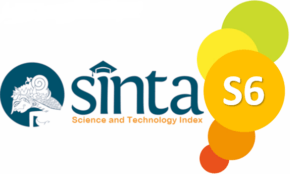Pengaruh Tingkat Pendapatan, Pengetahuan Zakat Dan Tingkat Kepercayaan Terhadap Ketaatan Masyarakat Membayar Zakat Pada Badan Amil Zakat Nasional
DOI:
https://doi.org/10.19109/iphi.v3i2.14209Keywords:
Income; Trust; ZakatAbstract
Abstract: Based on the 2018 National Zakat Statistics, the growth of ZIS collection in Indonesia in the period 2002-2018 reached an average of 34.82 percent, while GDP growth in Indonesia in the same period reached an average of 5.38 percent. collected reached Rp. 8.1 trillion, most of which was collected from income zakat of 40.68 percent. Indeed, when compared with the potential for zakat of Rp. 233.8 T. That is, compared to the large potential of zakat collection, it is still not optimal. The research used is field research, primary data from questionnaires and secondary data from documentation. The population in this study was the people of Banyuasin III District of 66,420 and the determination of the sample by the slovin method was 100 samples. In this study the authors used quantitative research and analyzed using SPSS 24. Based on the results of the regression equation research. then obedience to pay zakat will increase by -1% assuming the other independent variables are constant. Income has no significant effect on obedience. The second hypothesis states that the level of knowledge has no effect on people's obedience based on the regression equation showing that the zakat knowledge variable (X2) has a positive regression coefficient direction with obedience, namely b = 0.01, which means that if knowledge increases by 1%, obedience to pay zakat will increase. by 1% assuming the other independent variables are constant. Based on the regression results, it can be seen that the income level variable has a t-count value of 1.640 with a sig value of 0.104 <0.05. This is evidenced that the level of income has a significant positive effect on obedience. Based on these data, it shows that the variable has the highest beta, which is 1.11. This means that the Y variable (obedience) is more influenced by the X2 variable (knowledge level) compared to other variables.
Abstract: Based on the 2018 National Zakat Statistics, the growth of ZIS collection in Indonesia in the period 2002-2018 reached an average of 34.82 percent, while GDP growth in Indonesia in the same period reached an average of 5.38 percent. collected reached Rp. 8.1 trillion, most of which was collected from income zakat of 40.68 percent. Indeed, when compared with the potential for zakat of Rp. 233.8 T. That is, compared to the large potential of zakat collection, it is still not optimal. The research used is field research, primary data from questionnaires and secondary data from documentation. The population in this study was the people of Banyuasin III District of 66,420 and the determination of the sample by the slovin method was 100 samples. In this study the authors used quantitative research and analyzed using SPSS 24. Based on the results of the regression equation research. then obedience to pay zakat will increase by -1% assuming the other independent variables are constant. Income has no significant effect on obedience. The second hypothesis states that the level of knowledge has no effect on people's obedience based on the regression equation showing that the zakat knowledge variable (X2) has a positive regression coefficient direction with obedience, namely b = 0.01, which means that if knowledge increases by 1%, obedience to pay zakat will increase. by 1% assuming the other independent variables are constant. Based on the regression results, it can be seen that the income level variable has a t-count value of 1.640 with a sig value of 0.104 <0.05. This is evidenced that the level of income has a significant positive effect on obedience. Based on these data, it shows that the variable has the highest beta, which is 1.11. This means that the Y variable (obedience) is more influenced by the X2 variable (knowledge level) compared to other variables.
Downloads
Issue
Section
License
Copyright Notice here












